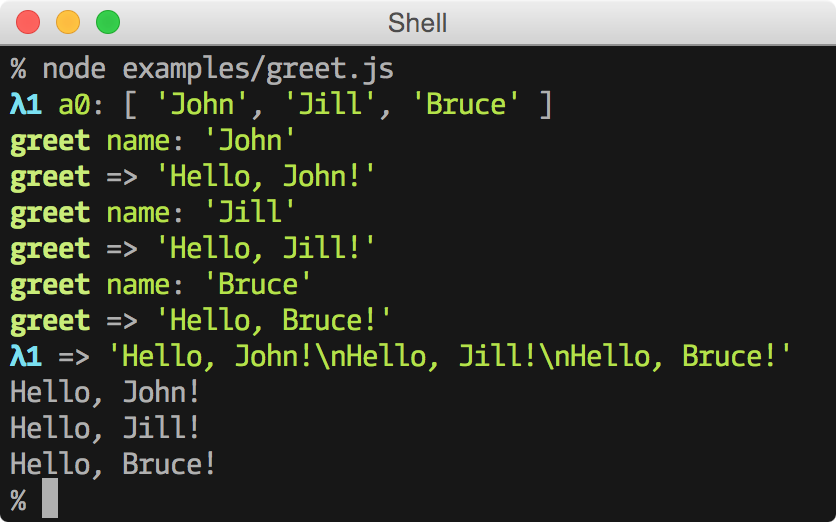treɪs | a simple tool to debug and observe functions
treis will answer the question "what arguments is this function called with and what does it return?".
It can be particularly useful when programming in point-free style.
If you want to know what a function does in the middle of a compose
pipeline, just do:
compose(h, treis(g), f);$ npm install treisReturns a decorated version of fn that prints the arguments given to fn
and its return value.
You can optionally label functions by passing a name before the function to
be decorated, if not, treis will try to use fn.name.
Writes output to stderr.
const R = require('ramda');
const treis = require('treis');
// greet ∷ String → String
const greet = (name) =>
`Hello, ${name}!`
// greetPeople ∷ [String] → String
const greetPeople =
R.compose(R.join('\n'),
R.map(treis(greet)));
const people = ['John', 'Jill', 'Bruce'];
console.log(treis(greetPeople)(people));Works with browserify.
These require surround.vim:
" Surround a word with treis()
nmap <buffer> <Leader>tr ysiwftreis<CR>f(
" Surround a visual selection with treis()
vmap <buffer> <Leader>tr Sftreis<CR>f(
nmap <buffer> <Leader>tR ysiwfrequire('treis')<CR>f(
vmap <buffer> <Leader>tR Sfrequire('treis')<CR>f(